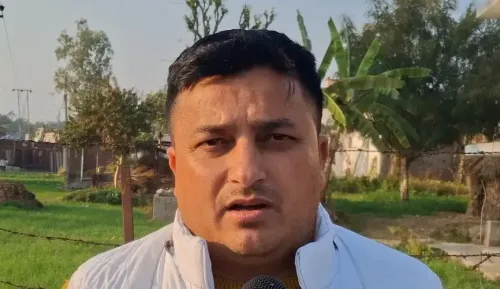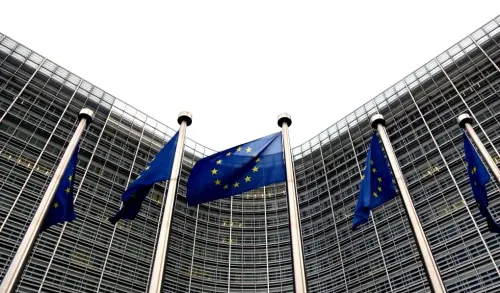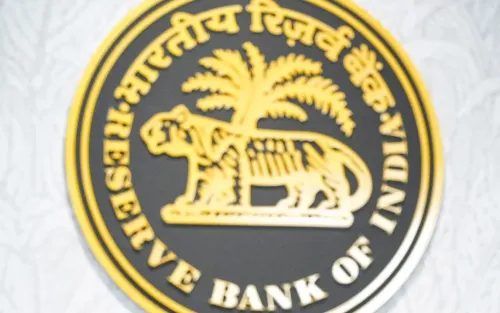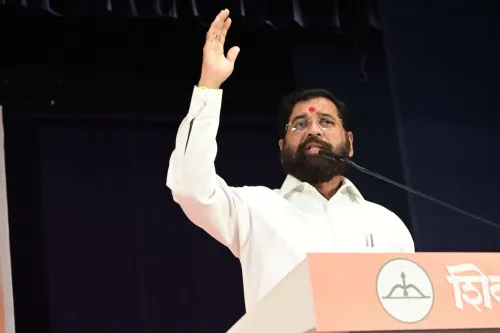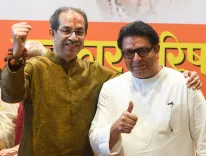Is Christianity Truly Indian, Not Foreign, According to Archbishop Thazhath?
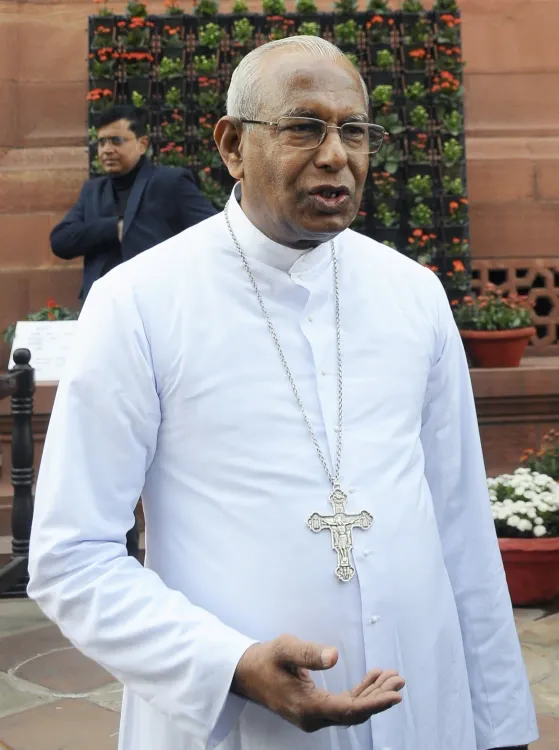
Synopsis
Key Takeaways
- Christianity's historical roots in India span over 2,000 years.
- Increased discrimination against Christians in Kerala is raising concerns.
- The Archbishop warns of potential protests if rights are not upheld.
- The Church is preparing for a stronger political stance.
- There is a call for immediate implementation of minority rights protections.
Thrissur, Nov 6 (NationPress) “In North India, the Christian Church is being misrepresented as foreign. However, Christianity has been rooted in India for more than 2,000 years, making it fundamentally Indian rather than alien,” stated Archbishop Mar Andrews Thazhath, the leader of the Thrissur Archdiocese of the Syro-Malabar Catholic Church, on Thursday.
St. Thomas, one of the twelve apostles of Lord Jesus, arrived in Kerala around 52 CE, establishing the first churches and positioning India among the earliest nations to embrace Christianity. He traveled throughout the subcontinent, reaching what is now Chennai, where he was martyred in 72 AD at St. Thomas Mount. The community he formed is one of the oldest Christian groups globally, possessing a unique history and identity.
Archbishop Thazhath cautioned that ongoing neglect of Christian rights could prompt new mass protests in Kerala, highlighting that the Christian community is increasingly facing discrimination and marginalization, especially in education and public representation.
“Christians should not be marginalized by being denied their rights and representation as minorities. If this situation persists, we will be forced to adopt a stronger political stance in the forthcoming elections,” he warned.
He suggested that the Church might need to engage in a ‘second liberation struggle,’ recalling its historical fight against injustice in Kerala.
“The Church has always actively opposed discrimination. We urge the government not to push us into another such struggle,” he cautioned.
He mentioned that these issues would be thoroughly addressed at the upcoming Community Awareness Conference organized by the Church.
“If we are ignored, we too will respond accordingly, and this will reflect in local body and Assembly elections,” he noted, clarifying that the Church has not yet declared a political position.
Expressing concern regarding hostility and attacks against Christians across India under anti-conversion laws, the Archbishop revealed that he had personally met with Prime Minister Narendra Modi to share these concerns.
“The Christian community is under threat, and the Constitution must be upheld,” he emphasized.
Archbishop Thazhath also highlighted the challenges faced by Christian-run educational institutions in Kerala.
He questioned why a Christian has not been appointed as chairperson of the Kerala State Minority Commission and urged for the immediate implementation of the Justice J.B. Koshy Commission Report.
He criticized the State Education Department for delays in teacher appointments, accusing the government of bias against minority institutions.
“Favoring certain religions while discriminating against others goes against the essence of the Constitution,” he reiterated, assuring that the Church will steadfastly defend minority rights.


